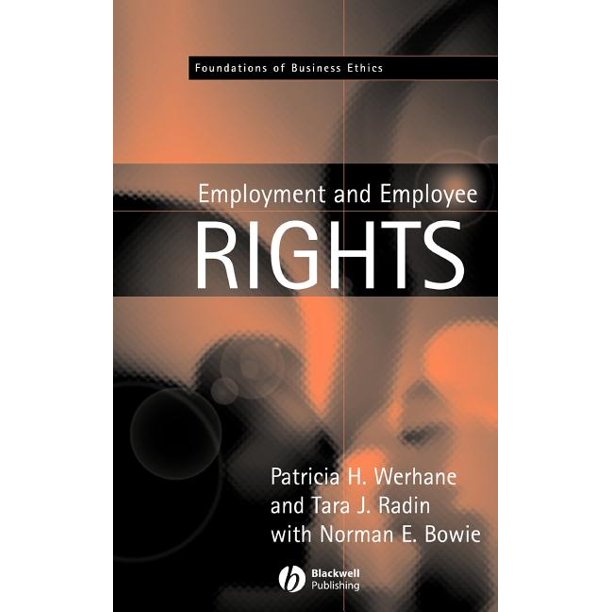We may earn a commission if you click on a product link and make a purchase at no additional cost to you. For more information, please see our disclosure policy.
Exploring the world of employment law can be tricky, whether you’re just starting in your first job or have been working for a while. Understanding your rights and responsibilities is quite important in the workplace.
Each country has its specific laws and rules. But do you know that these laws often offer more protection than federal laws in California? This fact makes it especially important for everyone, including young students, to understand the basics of employment law.
So, if you’re in California or just interested in how it works, you’re in the right place. Stay connected for further information.
Understanding Employment Contracts
An employment contract is more than just a piece of paper; it’s a binding agreement between you and your employer. These contracts outline your job responsibilities,
It’s essential to read and understand your contract thoroughly before signing. If there’s anything you don’t understand, don’t hesitate to ask questions or seek clarification. Remember, a well-understood contract can be a strong foundation for your employment relationship.
So, make sure you know everything about it before you start working. It’ll help you have a smoother and better work experience.
Dive into the essentials of employment law! Discover key insights on contracts, workplace rights, and legal tips that can elevate your career path. Stay informed and empowered in your job journey. #EmploymentLawEssentials #CareerGrowthClick To TweetFinal Paycheck Law
One of the most critical aspects of law is understanding your rights regarding your final paycheck. This final calculation should include your regular wages and also accrued vacation time or other owed compensations.
For example, you have a job in California, and it’s time to leave, maybe because you found a new one or because the job ended; this is when you’re supposed to get a final paycheck. In the country, there are very clear rules about this.
According to the rule, you don’t have to wait for the money you worked for. In fact, if you have resigned with at least 72 hours’ notice, you should also get your final paycheck at the time of leaving.
However, if your boss is not giving you your full payment, this is where the paycheck attorney (who works for employee rights)comes in. To find the right one, you can search online with the keyword California final paycheck law attorneys and connect with them. Skilled ones know about the laws and can talk to your boss on your behalf. They understand your situation and act accordingly.
Also, they go to court( if needed) to ensure you get everything you own. After all, the law is all about being fair to workers.
Navigating Workplace Discrimination Laws
Workplace discrimination is a serious issue, and it’s vital to know that laws are in place to protect you. Discrimination can happen for many reasons, including gender, age, race, religion, or if you have any disability.
Federal laws like the Civil Rights Act say that your workplace can’t treat you unfairly because of who you are. Now, if you’re in California, these rules are even robust under the Fair Employment and Housing Act. This ensures a fair and respectful work environment for everyone.
It doesn’t matter where you’re from, how old you are, or what you believe in – you should be treated with respect. In essence, everyone deserves a workplace that’s fair and respectful.
Understanding Wage and Hour Laws
Wage and hour laws are like the rules that decide how much money you get paid and how your hours at work are managed. It’s important to know that you should be paid at least the minimum wage. If you work more than 40 hours a week, you’re typically entitled to overtime pay.
In simple words, overtime pay is higher than your regular pay rate, and it’s essential to ensure you receive it if you’ve been working extra hours.
Keep a close eye on your paycheck to ensure you’re receiving the correct compensation for your hard work. If you think something’s not right, you can ask for help to make sure you’re treated fairly and get the money you’ve earned.
Navigating Leaves of Absence
Understanding your rights regarding leaves of absence is essential, especially when it comes to medical or family-related leaves. There are laws that protect you in these situations.
The Family and Medical Leave Act (FMLA) allows qualified employees to take job-protected, unpaid leave for specific family and medical reasons. Plus, your health
The state offers additional protections and may provide paid or unpaid leave under different circumstances, like pregnancy or paid family leave. Knowing these rights can be crucial during significant life events.
The Final Thoughts
Employment laws are designed to protect and empower the workforce. These laws reflect a commitment to fair and equitable treatment in the workplace. Understanding these laws is a must for employees and employers. This helps in creating a respectful workplace culture.
This must-read book offers a clear and practical examination of workplace ethics, empowering readers to understand and navigate complex issues around employee rights, fairness, and employer accountability.
Related posts:
Joey Trebif is the pen name of Mark Fiebert, a former finance executive who hired and managed dozens of professionals during his 30-plus-year career. He now shares expert job search, resume, and career advice on CareerAlley.com.




